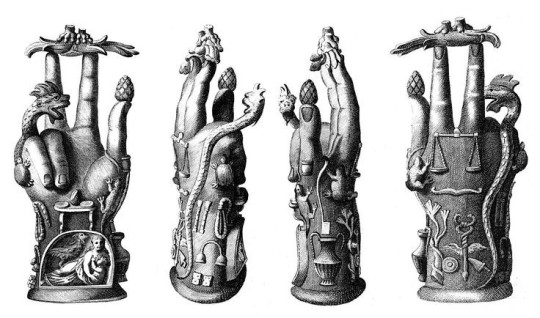#Sabazios
Explore tagged Tumblr posts
Photo
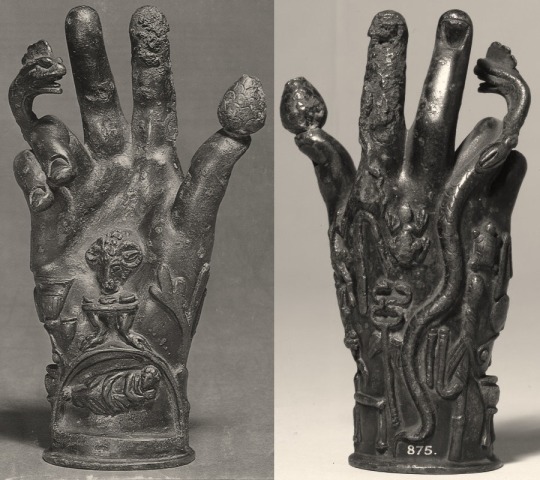
Bronze hand used in the worship of Sabazios. Hands decorated with religious symbols were designed to stand in sanctuaries or, like this one, were attached to poles for processional use.
Date: Roman 1st–2nd century AD. Collection: British Museum.
4K notes
·
View notes
Text
Zagreus Sabazius
Important reminder. Everything I write about here is only indirectly connected by distant assumptions and rare crossings and absolutely should not be considered the immutable truth. As someone whose patron is Zagreus, I write about my findings and assumptions, but I am also totally possibly to be mistaken and see what I want to see myself. Take everything with a grain of salt.
We have already once looked at the Greek sources with the story of Zagreus. But beyond the rare surviving Greek sources, we will always have something else. Why is Zagreus sometimes mentioned with the epithet “Sabazius”? What does this epithet mean? What are Zagreus' powers? And why, after all, is he and Gaia called “highest of the all gods” in the Alcmeonis?
Welcome to my deep dive on one of the most mysterious theoi — Zagreus Sabazius.

So, later Greek writers, like Strabo in the first century CE, linked Sabazios with Zagreus. But who is Sabazios and what does it mean?
Sabazius comes from a common root with Sanskrit sabhâdj, honored, and with Greek σέβειν, to honor. It's also may be connected with the Indo-European *swo-, meaning "[his] own," and with the idea of freedom.
Sabazios is a deity originating in Asia Minor. He is the chief sky god of the Phrygians and Thracians. Sabazios gained prominence across the Roman Empire, particularly favored in the Central Balkans due to Thracian influence. On some monuments Sabazius is called “master of the cosmos”.

Decree of the organisation of worshippers of Sabazius, 102 BC
It seems likely that the migrating Phrygians brought Sabazios with them when they settled in Anatolia in the early first millennium BCE, and that the god's origins are to be looked for in Macedonia and Thrace. The ancient sanctuary of Perperikon in modern-day Bulgaria, uncovered in 2000, is believed to be that of Sabazios.


Two altars in the sanctuary were used for blood sacrifice.

And as Euripides has already graciously told us, Zagreus was honored as a god of blood, among other things. Sabazius, as a deity, was often associated with sky, thunder, nature, boons, mystery, and blood. One of its most frequent symbols was serpent.
Sabazius' references sometimes included Cybele. She is an Anatolian mother goddess. She is Phrygia's only known goddess, and was probably its national deity. Greek colonists in Asia Minor adopted and adapted her Phrygian cult and spread it to mainland Greece and to the more distant western Greek colonies around the 6th century BC.
In Greece, Cybele met with a mixed reception. She became partially assimilated to aspects of the Earth-goddess Gaia, of her possibly Minoan equivalent Rhea, and of the harvest–mother goddess Demeter.
And now everything suddenly made sense. Why are Gaia and Zagreus named the highest of all the gods in Alcmeonis? Because they always have been.

In her transition to Greece, Cybele, Phrygia's only known goddess, was named Gaia (which honestly makes much more sense to me than associating her with Rhea or Demeter). And Zagreus? And Zagreus remained Zagreus.
Gaia Cybele and Zagreus Sabazius, Mother Earth and Sky King, the highest gods of the Phrygians and Thracians, who later also made their way to Greece.
But unfortunately, no individual direct myths about King Sabazius have survived either.
But there was also one thing that persisted and always baffled me.
In my personal experience with Zagreus, his signature weapon has always been moonblades to me. And I always wondered why. What does Zagreus have to do with the moon? Why is it always an integral part of his power and history in my experience?
Well, now I know the answer.
At one point Sabazius merged with the Asia Minor and Syrian moon deity, Mēn. Mēn was a lunar god worshipped in the western interior parts of Anatolia. He is attested in various localized variants, such as Mēn Askaenos in Antioch in Pisidia, or Mēn Pharnakou at Ameria in Pontus.

Bust of Mēn in Museum of Anatolian Civilizations
In the Kingdom of Pontus, there was a temple estate dedicated to Mēn Pharnakou and Selene at Ameria, near Cabira (Strabo 12.3.31). The temple was probably established by Pharnakes I in the 2nd century BC, apparently in an attempt to counterbalance the influence of the Moon goddess Ma of Comana. The cult of Mēn Pharnakou in Pontus has been traced to the appearance of the star and crescent motif on Pontic coins at the time.
A similar temple estate dedicated to Mēn Askaenos existed in Pisidia, first centered around Anabura and then shifted to the nearby city of Pisidian Antioch after its founding by the Seleucids around 280 BC. The temple estate/sacred sanctuary (ἱερόs) was a theocratic monarchy ruled by the "Priest of Priests," a hereditary title. According to Strabo, this "temple state" that the cult of Mên Askaenos controlled near Pisidian Antioch, persisted until the city was refounded by the Romans in 25 BC, becoming Colonia Caesarea Augusta.
The Augustan History has the Roman emperor Caracalla (r. 198–217) venerate Lunus at Carrhae; this, i.e. a masculine variant of Luna, "Moon", has been taken as a Latinized name for Mēn.
Even though no specific myths have survived about any aspect of Zagreus, it gives us a wealth of information about what Zagreus was and is and the diverse number of domains he holds.
Yes, Zagreus. Zagreus, god of mysteries, blood, flesh, sky, thunder, nature and moon. Zagreus Sabazius, Zagreus Mēn, Zagreus the Winged Serpent Hunter, Zagreus the Scarlet Thunderer, Zagreus the Serpent King. Zagreus Prince of Chthonia, Zagreus King of Sky, Zagreus Highest of All the Gods, Zagreus Master of the Cosmos.
Ζαγρεύς Σαβάζιος
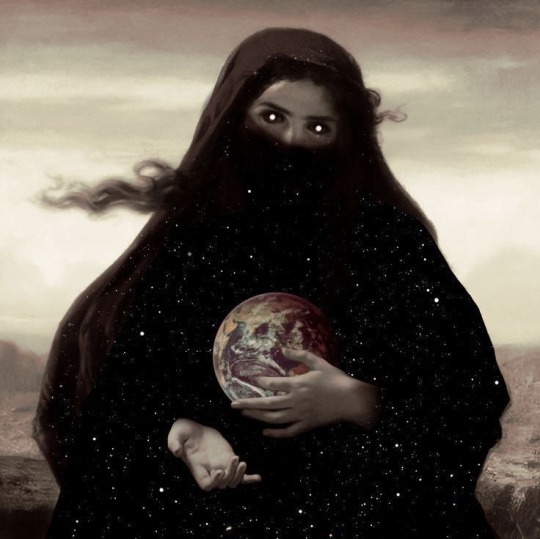
#zagreus#zagreus deity#zagreus sabazius#Zagreus Mēn#Ζαγρεύς#Ζαγρεύς Σαβάζιος#Ζαγτεύς Μήν#greek mythology#greek gods#hellenic polytheism#hellenism#greek myth#greek pantheon#hellenic gods#theoi#sabazios#Mēn#hellenic deities#helpol#greek history#ancient greek#ancient greece#ancient greek mythology#ancient greek gods#ancient greek religion#ancient history#mythology#as you can see I'm still in dire need of psychiatric help
34 notes
·
View notes
Text
Jesús es Dioniso: el Magus de la Era de Piscis
Como hemos visto a lo largo de esta saga de mis escritos sobre el cristianismo nos daremos cuenta que el cristianismo es una religión profundamente e intrínsecamente griega, el judaísmo es solo una excusa más no la base principal de esta religión. Los griegos usaron a este nuevo personaje: Jesús, para embadurnarlo con todo lo mistérico y toda la cosmogonía religiosa griega pagana posible. Jesús…

View On WordPress
#Apollo#Baccho#Christ#Dioniso#dionysus#dioses#Fausto Ribadeneira#Fausto Ribadeneira Garófalo#hermes#historia#history#Jesús#jesus and mary#María Magdalena#Mary Magdalene#mitología#Mitología Griega#Mitología Judeocristiana#orígenes cristianismo#Sabazios#verdadera historia#Zeus
2 notes
·
View notes
Text


Semele, mother of Dionysus.
Sabazios, a Phrygian god turned into an aspect of Zeus and/or Dionysus.
6 notes
·
View notes
Text

Sabazios Emoji
#Sabazios#dionysusismydaddy#dionysus#dionysian#dionysians#dionysos#greek gods#greek mythology#dionysus god#greek pantheon#pagan#custom emoji#discord emoji
2 notes
·
View notes
Text

DIONYSIUS, also known as Liber Pater, and later Bacchus, was the son of Jupiter and Semele; also said to be the son of Jupiter and Nysa, but Nysa was the cave where he was said to have been nursed by Nymphs.
He was called Liber Pater, either after the liberty of the fatherland, which he defended with arms, or because wine, of which he was the inventor, renders tongues free and easy. He was called Bacchus, either after the Bacchant women who followed him, or after berries [baccae], which he taught how to press in wine-presses. To those whose country could not bear grapes, he taught how to make a drink from barley.
In Boeotia he commanded, for the sake of the fatherland, that all cities should be free. Leading around an army of men and women, he beat up nefarious men as a deserved punishment. He crossed over to India, and waged war, in the 2508th year of the world and the 1454th before Christ was born. Three years later, he returned to Boeotia with many spoils. Consult Diodorus of Sicily, On the Legendary Deeds of the Ancients, book 5.
Another DIONYSIUS much older than him, earlier in time, called Sabazios by some, was said to be the son of Jupiter and Persephone. He is said to be the first to put oxen under the yoke to till the land, which is why he is depicted with horns. See Diodorus of Sicily, the same book as above.
#dionysus#liber pater#bacchus#sabazios#prima pars#mythical figures#greek myth#roman myth#euhemerism#inventors#diodorus of sicily#rouille is just convinced that dionysus is spelled dionysius i guess
3 notes
·
View notes
Text
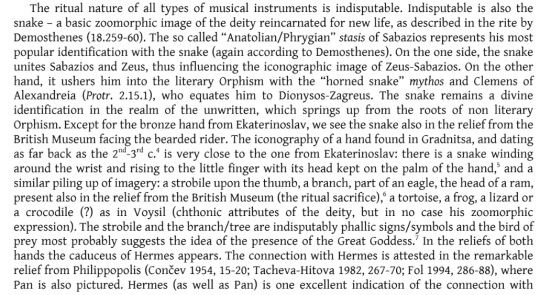
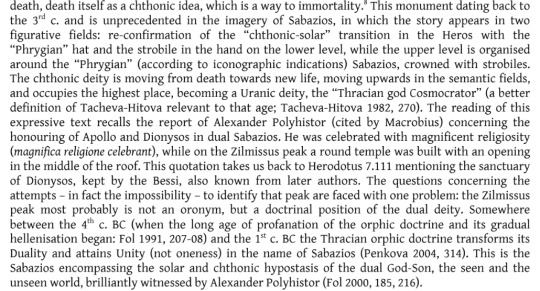
"The cult of Sabazios in the North Black Sea - Via Thrace?", Ruja Popova
9 notes
·
View notes
Text
[300% delusional] surely there's SOMEONE i wrote with here a decade ago that's still around
#— 𝚘𝚘𝚌.#prowling through tags for old muses and seeing like#active 2 years ago. active 5 years ago. active 6 years ago.#and it's making me want to kermit. and go to an old folk's home where i belong#doesn't help that tumblr's made blog discovery total dog it seems.#sabazio come home please#or textsfromkatsuragi. or piercing-wind/jokyoukou. or
8 notes
·
View notes
Text
Lord Dionysus/Bacchus deep dive

Lord Dionysus is an eccentric god, He is an understanding god, I adore him as a researcher and as someone in the community with schizophrenia and mental illness, he is kind far beyond words, he is not only a wine god but also the god of freedom and ecstasy, may we all respect him and may his devotees and worshipers speak of his good deeds and yell in his honor of goodness.
Signs he's reaching out • smelling wine all of a sudden, craving wine, You feel a twinge of madness, dreams with his attributes with him, seeing references of him everywhere
Herbs •psalakanthos plant, Grapes and their vines, Figs, Bay laurel, Barley, Pine, Pomegranate, Fennel, apples, berries, weed, Silver Fir, Bindweed, poppy, wheat and hops leafs, wildflowers, pine cones, Apple seeds, Blazing star. I think he would like Cinnamon, mint, feverfew (happiness), Pepper, basil, chives, horseradish (courage), orange, lemongrass, marjoram (insight), vanilla, sorrel, cinnamon (love)
Animals• Oxen and wild animals, asses, Leopards, Panther, Cheetah, serpents, rams, dolphins, tigers, lynx, panthers, goats, bats, griffons, bulls , foxes, deers/fawns
Colors •purple, green, gold, Red, Black, White.
Patron of• fruit and intoxitation, Parties, Festivities, Banquets, Drinking, Bacchic Revelry, Madness, Bacchic Frenzy, Insanity, Hallucination, Homosexuality, Effeminacy, Cross-dressing, Forest Wilderness, Wild vegetation, Predatory big cats, Reincarnation, The path to Elysium, Comedy and Tragedy Plays, Playwrites, Actors, bartenders, the arts, non-binary people, divination, witchcraft, oracles
Curses• violence, and sickness, Destructive insanity, madness
Blessings• pleasure and fun, Religious frenzy (in the orgiastic cults), Ecstasy, Afterlife in Elysium (paradise), getting a bigger friend group, charismatic going up, getting a romantic partner.
Diety of• wine-making, orchards, fruit, vegetation, fertility, festivity, insanity, ritual madness, religious ecstasy, theatre, partying, Epiphany, weddings, death, sacrifice, sexuality, dancing, immortality, and reincarnation, uninhibited freedom, as well as the subversion of the powerful, ecstasy, and abandon, swamps and marshes.
Crystals• Amethyst, grape agate, Garnet, Ruby, deep red stones, tiger eye, serpentine, leopard jasper, amber, green opal or jade, carnelian, rose quartz (someone had it on their alter for him, so I added it here.), bloodstone, sugilite, purple fluorite, ametrine lepidolite
Mortal or immortal • immortal
Zodiac • Taruas
Vows/omans• none
Number• 7
Morals• he is morally ambiguous
Married to• Ariadne
Past lovers• Althaia, Ampelos, Aphrodite, Erigone, Kronois, Pallene, Physokoa, Polymnos.
What he favors in devotees• free-spirited, out-of-the-norm, wild lifestyle, gender fluid, transgender, nonbinary people. People are restricted wanting to become free.
Personality• He brings joy, ecstasy, and merriment, but also delivers "brutal and blinding rage”, he's a very chill guy, many say he is sassy. I met him once, and he respects people's boundaries.
Home• Mount Olympus
Equivalents/most resemblance • Osiris, Hades, Sabazios, Yahweh, Bacchus, Liber, Tammuz, Orotalt, Fufluns, Acan, Jesus.
Epithets• Acratophorus, Ἀκρατοφό.ρος “giver of unmixed wine at Phigaleia in arcadia, Acroreites at Sicyon Adoneus a Latinised form of Adonis and is also used as an epithet for Bacchus, AegobolusΑἰγοβόλος "goat-shooter" at Potniae in Boeoria, Aesymnetes Αἰσυμνήτης “ruler" or "lord" at Aroë and Patrae in Achaea, Agrios Ἄγριος "wild", in Macedonia, Androgynos Ἀνδρόγυνος ”Androgynous” specifically in intercourse referring to the god taking both an active male and a passive female role, Anthroporraistes, Ἀνθρωπορραίστης “man-destroyer" a title of Dionysus at Tenedos, Bassareus, Βασσαρεύς "fox-skin", which item was worn by his cultists in their mysteries. Bougenes, Βουγενής or Βοηγενής “borne by a cow", in the Mysteries of Lerna,
Braetes, Βραίτης "related to beer" at Thrace, Briseus Βρῑσεύς "he who prevails" in Smyrna, Bromios Βρόμιος "roaring” and "roar of thunder" refering to the wind amd primarily relating to the central death/resurrection element of his myths and also the god's transformations into lion and bull and of those who drink alcohol and refers to Dionysus' father, Zeus "the thunderer", Choiropsalasχοιροψάλας “pig-plucker" Greek χοῖρος = "pig"(which was used as a slang term for the female genitalia as A reference to Dionysus's role as a fertility deity), Chthonios Χθόνιος “the subterranean”, Cistophorus Κιστοφόρος "basket-bearer and ivy-bearer" because baskets are sacred to the Dionysus,Dimetor Διμήτωρ "twice-born" which Refers to Dionysus's two births, Dendrites Δενδρίτης "he of the trees" as a fertility god, Dithyrambos Διθύραμβος used at his festivals referring to his premature birth, Eleutherios Ἐλευθέριος “the liberator" also a epithet shared with Eros, Endendros ("he in the tree"), Enorches "with balls" with reference to his fertility, or "in the testicles" in reference to Zeus' sewing the baby Dionysus "into his thigh" which means his testicles used in Samos and Lesbos, Eridromos"good-running" in Nonnus' Dionysiaca, Erikryptos Ἐρίκρυπτος "completely hidden" in Macedonia, Euaster Εὐαστήρ from the cry "euae", Euius (Euios), from the cry "euae" in lyric passages, and in Euripides’ play “the bacche, Lacchus Lακχος a possible epithet which is associated with the Elusinian Mysteries, The name "Iacchus" may come from the Ιακχος (Iakchos) whicj is a hymn sung in honor of Dionysus.
Indoletes, Ἰνδολέτης, meaning slayer/killer of Indians Due to his campaign against the Indians, Isodaetes, Ισοδαίτης, meaning "he who distributes equal portions", cult epithet which is also shared with Helios, Kemilius, Κεμήλιος and kemas: "young deer, pricket",
Liknites "he of the winnowing fan", as a fertility god connected with mystery religions ( a winnowing fan was used to separate the chaff from the grain.)
Palazzo Massimo, Rome, Lenaius, Ληναῖος "god of the wine-press", Lyaeus, or Lyaios Λυαῖος, "deliverer” and "loosener") which refers to him as who releases from care and anxiety,
Lysius, Λύσιος "delivering, releasing" At Thebes there was a temple of Dionysus Lysius, MelanaigisΜελάναιγις "of the black goatskin" at the Apaturia festival,
Morychus Μόρυχος “smeared" in Sicily, because his icon was smeared with wine less at the vintage, Mystes Μύστης "of the mysteries" at Tegea in Arcadia, Nysian Nύσιος according to Philostatus he was called like this by the Ancient indians Most probably, because according to legend he founded the city of Nysa, Oeneus, Οἰνεύς "wine-dark" as god of the wine press, Omadios “flesh-eater", Eusebius writes in Preparation for the gospel that Euelpis of Carystus states that in Chios and Tendos they did a human sacrifice to Dionysus Omadios,
Phallen , (Φαλλήν) (probably "related to the phallus” at Lesbos, Phleus "related to the bloοm of a plant", Peudanor Ψευδάνωρ "false man" referring to his feminine qualities in Macedonia,
Pericionius, Περικιόνιος "climbing the column (ivy)" a name of Dionysus at Thebes, Semeleios or Semeleius or Semeleus an obscure epithet meaning 'He of the Earth' and 'son of Semele' Also “Son of Semele, Iakchus, wealth-giver”,
Skyllitas, Σκυλλίτας “related to the vine-branch" at Kos, Sykites, Συκίτης "related to figs" at Laconia,Taurophagus, Ταυροφάγος “bull eating", Tauros Ταῦρος “a bull", Theoinus, Θέοινος wine-god of a festival in Attica, Τhyiοn, Θυίων "from the festival of Dionysus 'Thyia' (Θυῐα) at Elis", Thyllophorus, Θυλλοφόρος "bearing leaves" at Kos, Dionysus and Zeus absorbs the role of Sabazios (a Thracian/Phrygian deity)
Facts• Dionysus was the last god to enter Olympus, When Dionysus had grown up lady Hera made him into a state of madness so he wandered through many countries of the earth, He was a student of the famous centaur Chiron who taught him how to dance, The common names Dennis and Denise are said to be derived from Dionysus. he hated the sight of an owl
Roots• Ancient Greece, Greek mythology, Mount Pramnos on Ikaria
Offerings • Honey, Meat, Alcohol (especially wine), Fruit, Cakes, Poetry, Songs, Spices (ex- cinnamon), Blood or liquids resembling blood, He thinks those "wine mom" signs that you get in cheap gift shops are hilarious, Grape juice, Intoxicants, Grapes, Olive oil, Apples, Figs, Eggs, Goblets, Curved daggers, Bull horns, Snake skin, Leopard or tiger print objects, Purple candles, Theatre masks, Sexual toys, Percussion instruments, Wine bottles, Fake/toy grapes, Leaves or curls from grapevines, Pine needles, Pinecones, Apple seeds, Bindweed, Wildflowers, Toys photos or art of any big cats, snakes, Hymns, Songs you’ve written, Any art that you create, Any stories that you create, Art, pictures of the comedy, Wine corks, Wine labels, Toy or miniature drums, milk, water from the sea (he has a strong connection with the sea), Decorative beads, party beads, flashy jewelry, Wine glasses, Shot glasses, Corkscrews, Sparkling cider, Grape flavored things, Cheese, hallucinogens, Nips (small alcohol bottles), Bottle opener, Beer/soda tabs, Alcohol bottles with cool labels, Costumes, NatureFig/fig newtonsBull imagery, Donkey imagery, Bones, Antlers, Dead/preserved animals, Hiking gear, Seeds, Concert/festival tickets, Locks of hair, Shaven beard hair, Pride swag, ravagant clothes/clothes that make you feel good, soup (you know , you know.)
Devotional • learn about sacred sex, shamanic journeying, responsible entheogen use, and alcohol as a sacrament, read “The Secret History” book, Make a playlist for Him, Dance and sing to your favorite songs or songs you’d think He would like, Throw a feast in His honor, Remembering to take your medication and taking care of your mental health, Support/donate to your local theatre in His name, Be a part of the theatre, Stand up for those that are marginalized, Write stories/plays for Him, Invite Him to watch plays or movies with you (especially comedies or tragedies), Throw parties or attend them, Attend festivals, Attend a wine tasting, Go on wine tours, Attend parades, Masturbate or partake in sexual acts for Him (if you’re comfortable doing so And over 18), Drink alcohol or grape juice, Smoke po, Learn about winemaking, Support local vineyards, Wear wreaths made from ivy, Wear faux leopard or tiger print, Wear the color purple, Pray to Him for things while intoxicated/high, Visit your local winery and participate in a grape-stomp, do some Homebrewing in his honor, Grow a garden in his honor, Make your own ritual tools in his honor, Collect art, do Glamourbombs in his honor, Pretend to be somebody else in his honor, go out to a club in his honor, listen to music in his honor, read in his his mythos, write things for a ritual and write a prayer for him, eat some grapes or have some grape juice or sparkling grape juice (or wine if able and of age), listen to party music, read plays, watch musicals or plays (ex- high school musical, Hamilton), listen to musical soundtracks, learn about the history of theatre, learn about viticulture and vineyards, do things that bring you pleasure, listen to party soundscapes, watch documentaries about any of his sacred animals, Trip intentionally/spiritually, Learn about substance abuse/recovery, Destigamtize drug users, Learn about harm reduction, Make home videos, Write poetry, Act, Dress up, Go to the woods, Dance/sing in the woods, Meditate in the woods, Learn wilderness safety and first aid, Learn what to do when encountering a wild animal, Go off the beaten path, Explore new areas, Pick up litter, Forage, Recycle bottles, Grow fruit, Try new fruits, Have sex (let the partner know beforehand it's in Diyonisus honor, 18+), Masturbate (18+), Have threesomes/swing (ask him before and make sure the other participants know it's in Dionysus's honor, 18+.), Finally, give into that one kink you’ve been ignoring (you know the one, 18+), Learn about consent with partners, Learn how to preserve dead animals, Learn about different life cycles (ex-plants, animals), Learn about immigration in your area, Learn about different cultures, Try foreign foods, Learn a new language, Learn about your ancestry, Help immigrants in your area, Grow your hair out, Keep a Manifest/Keep a manifestation journal, Use Sexual/creative energy to manifest, Shed your old self, Do Self-reflection/self-exploration, Identify areas where you overindulge (ex- food, substances, spending).
Symbols• Grapevine, ivy, phallus, Thyrsus, theatrical masks, Leopard Skin, Panther, Cheetah, the animal called asses, cymbals, swords, or serpents, rams, laurel, asphodel, dolphins, tiger, lynx, panther, horns, goats, his chariot pulled by 2 leopards, masks in general.
Siblings• Ares, Athena, Apollo, Artemis, Aphrodite, Hebe, Hermes, Heracles, Helen of Troy, Hephaestus, Perseus, Minos, the Muses, the Graces.
His friends/gets along with• Maenads and Bacchantes and Satyrs and Sileni and Pan and Priapus
Attendees• Seilenos (God of Drunkenness), Pan (God of Shepherds & Pastures) the Satyroi and Seilenoi (spirits of Fertility & the Wild) The Bakkhantes and Mainades (Nymphe and Women revellers) Komos Satyriskos (cup-bearer)
Appearance in astral or gen• Dionysus often took on a bestial shape and was associated with various animals, often wearing an Ivy wreath, the thyrsus, and the kantharos (a large two-handled goblet) In early Greek art he has represented as a mature male, bearded and robed holding a fennel staff tipped with a pine-cone, but later on he was portrayed as youthful sensuous, naked or semi-naked androgynous youth and effeminate with brown hair and pale features, often holding grapes and drinking wine.
Parentage• Zeus and Semele, some sources also say Zeus and Demeter, some say Zeus and Persephone, but he always sends up with Persephone as a foster mother or as a biological mother, but before his reincarnation, his parents were Ammon and Amalthea.
Pet• leopards
Children • Priapus, Hymen, Thaos, Staphylus, Ononpion, Cumus, Phthonus, the Graces and Deianira, Seilenos, Pan, Satyroi & Seilenoi, Bakkhantes & Mainades, Komodo’s
season and festivles• Diyonosus festivals were bacchanalia, Dionysia, Anthesteria, Dionysian, Lenaia, Panathenaia, his season was spring and March and April
Day• 11th to the 13th of the month of Anthesterion, around the time of the January or February full moon.
Sacred places• Boitia in Greece, naxos Greek, island Edina in western Thrake, his holiest shrine was Mt kithairon (Nysa) in Boiotia Greece, he also declared war on India. A sacred place is the theatre.
Status• Greek god in the major theoi, and an agriculture Demi God.
Pet peeves• Uderestemating him, he probably won't like it if you ignore him
Music• Disco, show tunes, psychedelic rock, acid folk, Greek folk music, EDM, classical, new wave, art pop, vaporwave, just anything you can dance and sing to.
Tarot• Temperance, fool card, three of cups, the tower, 9 of cups (based off of how people see him through their tarot cards)
Scents/Inscene • Pine incense, frankensince, patchouli and vanilla, nutmeg, mulled wine, storax, and Benzoin.
Prayers•
Regular prayer
Dionysos, god whose arrival is swift and certain, enduring friend of women and men whose welcome is warm, bringer of light, we see you in shadows. Dionysos, granter of great blessings, your presence is a heady wine. Kind-hearted god, to each you give as is fitting, each vessel you fill only as we can bear, and yet with even a sip, we are drunk upon you, and our faith is affirmed. Awesome god, by our own will we drink deeply, with you we become lost, we wander, we are found.
Litany to Dionysos
Dionysos of the vine, rich-tressed god of wine, potent and lusty, unmixed, undiluted, with full force you come to us, vital and robust, rich and strong and surprisingly sweet. Dionysos, I praise and honor you, I thank you for your blessings. Ivy-bearing Dionysos, god of the green, of the power of root on stone, the force of life that will make its own way in spite of all who labor to hold it back, no will or work can bind your might. I praise and honor you, I thank you for your blessings. Dionysos of the deep earth, of the dark world, of the unknown expanse beneath the black soil, beneath solid stone, of mysteries you know much, of death and of what lies beyond. God of secrets, I praise and honor you, I thank you for your blessings. Dionysos the inspiring, granter of words of prose or poesy, words heard best by the drunken and the mad, words forgotten with the passing of night and delight. Bacchus, granter of rare transport, I praise and honor you, I thank you for your blessings. Dionysos Soter, holder of the hearts of men, you free us from the cares of the world, each brilliant frenzied moment a shining jewel, each glimpse of the sacred more precious than gold. I praise and honor you, I thank you for your blessings. Kindly Dionysos, granter of good to men and women, giver of gifts to all who seek your blessing. Gracious Dionysos, accepter of offerings great and small, friend of mankind, I praise and honor you, I thank you for your blessings.
Regular Prayer to Dionysos
Dionysos, deep-hearted one who knows the souls of men and women, whose hand is ever open, ever within reach. Dionysos, god who runs in the dark, who sees with eyes shut tight, who dances to the heart’s strong beat, ever are you yourself, ever constant, ever changing god of those who are trapped, those who seek your truth and their own, those who seek vision beyond seeing, those who seek wisdom beyond knowledge, those who seek the self, pure and sweet, those who seek clarity beyond definition, who seek to embrace the uncertain, to hold, but loosely, to what is true beyond trust.
Regular prayer to Dionysos
I praise Dionysos, lord of the vine, lord of the far reaches of the mind; in the thick of the woods, along darkened paths, in the shadows of dusk and of dawn, you roam the world, the satyrs and the pretty nymphs dancing in your wake. Son of Zeus and fair-haired Semele, bold-hearted Semele, who dared to look into the face of glory, beautiful Semele who you carried into life again, Semele reborn who men called Thyone; beloved of clever Ariadne, quick-witted one, so dear to your heart, your bright-eyed bride and consort; Dionysos, friend of women, friend of the blissful, wild-eyed maenads, pilgrims and pioneers, those who seek, your cheer and inspiration, those who seek your release, from sorrow and despair, those who are lost in joy, and those who have found themselves in you. Dionysos, god of the darkest dark and the deepest deep, boundless one, endless one, fathomless one, in you we see the edges of ourselves, in you, we find our life’s journey, in you we find our home.
To Dionysos
I call to Dionysos, great god of the vine, son of thundering Zeus and headstrong Semele, loving husband of warm-hearted Ariadne. From the east you came, old before the ancients, throughout the elder world were you beloved; in Naxos and Boitia were you celebrated, in temples and in the savage wilderness, the fleet-footed maenads running in your wake. The sweetest, strongest wine is ever your drink; the mind’s release, the body’s loosening, your gift. O Dionysos; thyrsus-shaker, ivy-crowned god, we see you in the shadows, we see you on the edges, we see you in the haze of ecstasy, where we know the truth of passion, where we find the essence of our being. Bacchus, I call to you!

| Sources & websites in comments. |
I use resources, I do not own the info, and most deep dives have UPG (that I use in my work.) And I only take some information from sources. I am 14, this is my hobby, I am learning but I spent many hours and days on this, and I am always open to criticism. I have been doing worship for 5 years. Please know you can use the info, I do not sue, but I will take action if this work is used without permission and not put as a resource if used in any work. without permisson and not put as a resource if used in any work, for the public.
#the gods#hellenic devotion#hellenic polytheism#doing the research for you#hellenic worship#greek gods#greek mythology#qoutes#ancient greek#dionysus#greek pantheon#hellenic#dionysus deity#hellenism#dionysus worship#dionysus devotee#dionysus god#Dionysus#paganblr#paganism#polytheist#pagan#deity worship#deity work#bacchus#dionysos#the bacchae#Bacchush#hellenic gods#hellenic paganism
838 notes
·
View notes
Text

Carl Jung on “Our Uroboros.”
Prof Jung:
That is the hero again. The snake always means resurrection on account of shedding its skin.
According to an African myth, there was no death on earth originally; death came in by mistake.
People could shed their skins every year and so they were always new, rejuvenated, until once an old woman, in a distracted condition and feeble-minded, put on her old skin again and then she died.
That is the way death came into the world.
It is again the idea that human beings were like snakes originally: they did not die.
It was a snake that brought the idea of death to Adam and Eve in Paradise.
The snake was always associated with death, but death out of which new life was born.
But what is that definite symbol? A great deal has been said about it lately.
Miss von Franz: The Ouroboros.
Prof Jung: Exactly. The tail eater, or the two animals that devour each other. In alchemy that is represented in the form of the winged dragon and the wingless dragon that devour each other, one catching the tail of the other and forming a ring.
The simplest form is of course the dragon or the serpent that bites its own tail, so making the ring; the tail is the serpent and the head is as if it belonged to another animal.
The same idea has also been expressed by two animals, the dog and the wolf, devouring each other, or the winged and the wingless lion, or a male and a female lion, always forming a ring, so that one cannot see which is eating which.
They are eating each other; both destroy and both are destroyed.
And that expresses the idea that once the hero eats the serpent and once the serpent eats the hero.
You see, in these Gnostic rituals, or the ritual of Sabazios, man is superior to the serpent in a way-he makes use of the serpent.
That the golden snake descends through the body of the initiate means that the initiate asserts himself against the divine element of the snake: he is then a sort of dragon that
eats or overcomes the other dragon.
So it is one and the same symbolism whether expressed in this form or that.
In primitive myths it is usually the dragon that devours everything.
Even the hero, who by sheer luck and at the last moment succeeds in destroying the monster that has eaten him, cannot overcome the monster by a frontal attack, but he is able to defend his life and destroy the monster from within by the peculiar means of making a fire in its belly.
Fire is the artificial light against nature, as consciousness is the light which man has made against nature.
Nature herself is unconscious and the original man is unconscious; his great achievement against nature is that he becomes conscious.
And that light of consciousness against the unconsciousness of nature is expressed, for instance, by fire.
Against the powers of darkness, the dangers of the night, man can make a fire which enables him to see and to protect himself. Fire is an extraordinary fact really.
I often felt that when we were travelling in the wilds of Africa.
The pitch dark tropical night comes on quite suddenly: it just drops down on the earth, and everything becomes quite black.
And then we made a fire.
That is an amazing thing, the most impressive demonstration of man’s victory over nature; it was the means of the primitive hero against the power of devouring beasts, his attack against the great unconsciousness, when the light of consciousness disappeared again into the original darkness.
Now, in the alchemistic symbol of the two animals that devour each other, that peculiar functional relationship of man’s conscious to the natural darkness is depicted, and it is an astonishing fact that such a symbol developed in a time when the idea of the manifest religion was that the light had definitely overcome the darkness, that evil-or the
devil-had been overcome by the redeemer.
In just that time, this symbol developed, where darkness and light were on the same level practically; they were even represented as functioning together in a sort of natural rhythm.
Like the operation of the Chinese Yin and Yang, the transformation into each other, being conceived and born of each other, the one eating the other, and the one dying becoming the seed of itself in its own opposite.
This symbol of the Taigitu expresses the idea of the essence of life, because it shows the operation of the pairs of opposites.
In the heart of the darkness, the Yin, lies the seed of the light, the Yang; and in the light, the day, the Yang, lies the dark seed of the Yin again.
This is often represented in the East as two fishes in that position, meaning the two sides or the two aspects of man, the conscious and the unconscious man.
Now this preparation should make us understand the situation of the shepherd and the serpent.
What does it mean in the psychology of Nietzsche-Zarathustra that he suddenly discovers that shepherd in deadly embrace with the serpent?
He is apparently swallowing the snake, but the snake is attacking him at the same time, penetrating him.
Why such an image, or symbol, at this place?
You remember in his discussion with the dwarf just before, the dwarf was already the chthonic power. ~Carl Jung, Zarathustra Seminar
89 notes
·
View notes
Text

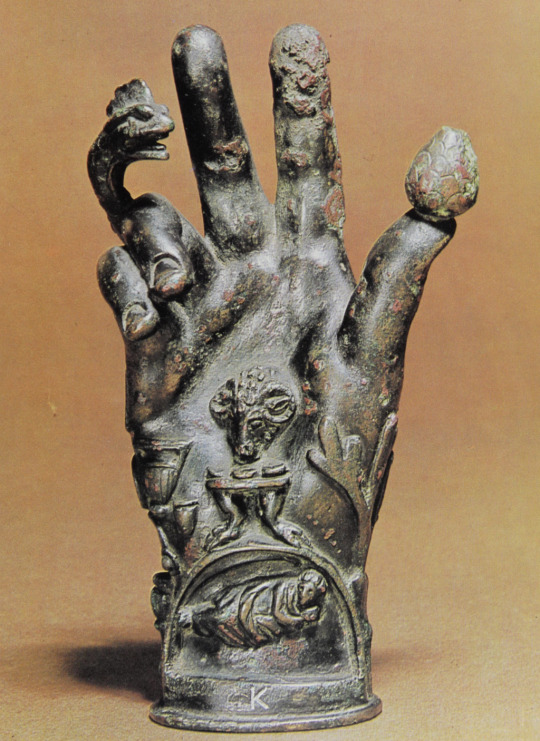
Roman magic hand to ward off bad luck.
3K notes
·
View notes
Photo
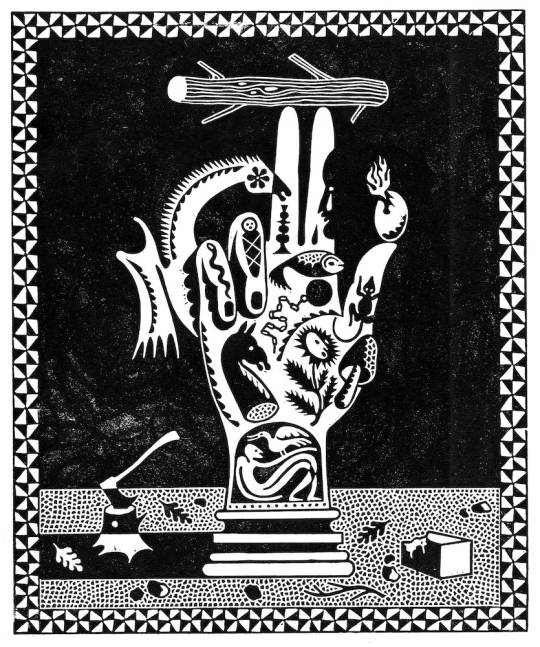
Hand of Sabazios - Sophie Hollington
888 notes
·
View notes
Text
The mysterious cult of Sabazios
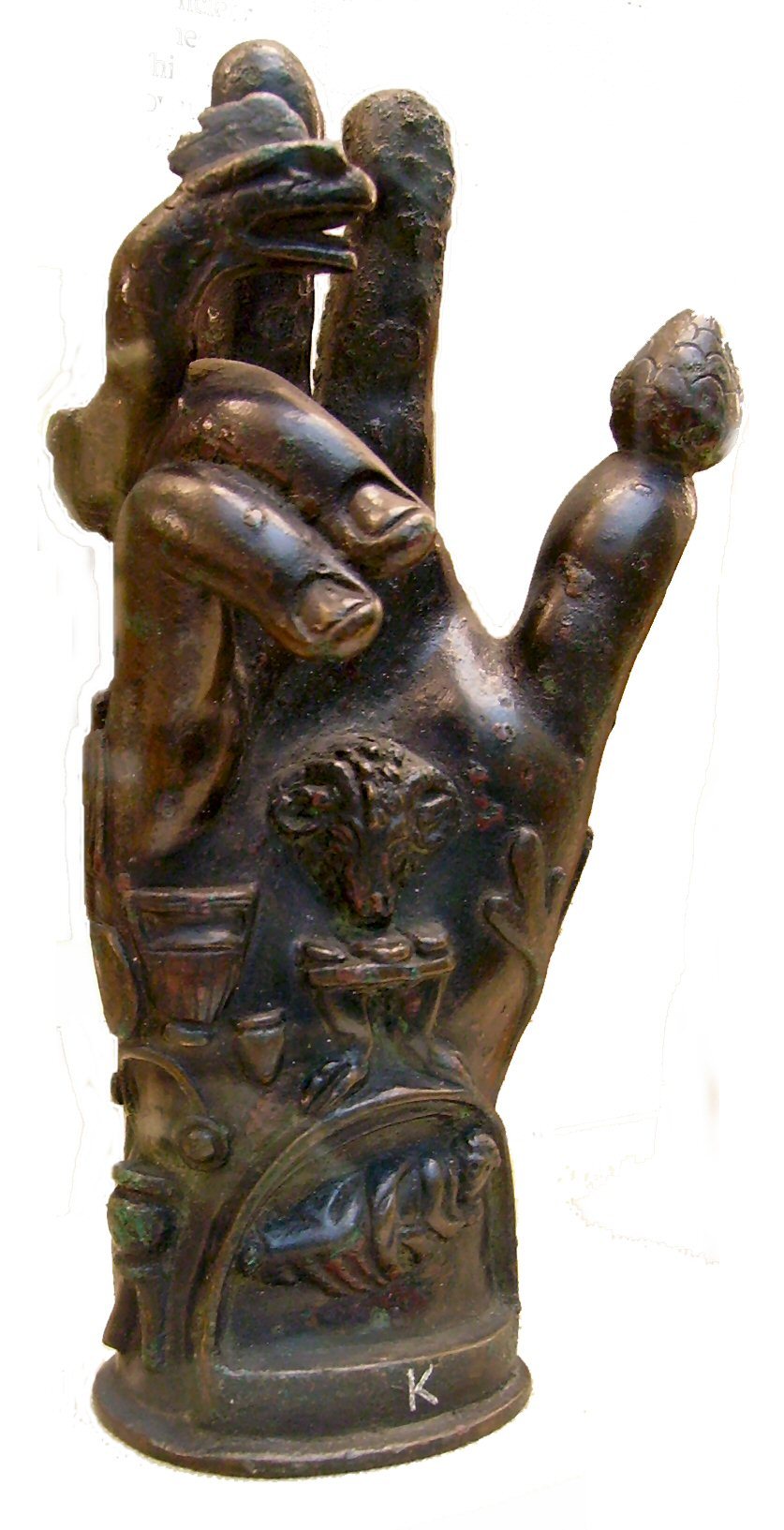
Bronze hand used in the worship of Sabazios. Roman, 1st-2nd century AD (British Museum) Sabazios, a god of Thracian or Anatolian origin, became popular in the Roman Empire, and had connections both with Jupiter and Dionysos. Hands decorated with religious symbols were designed to stand in sanctuaries or, like this one, were attached to poles for processional use. By: Mike Young.
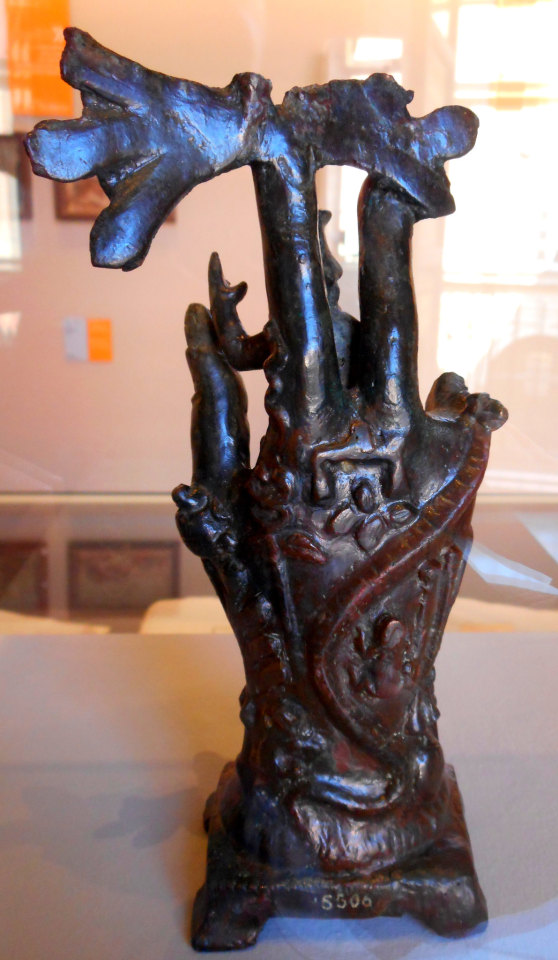
Found in Herculaneum. Photo taken by Carlo Raso at the Exhibition "Herculaneum and Pompeii: Vision of Discovery". Archaeological Museum of Naples.
References to the cult of Sabazios are found in the comedies of Aristophanes, which emphasize the non-Greek character of the god and the use of rituals full of emotion and accompanied by lively music and trance states. The cult of Sabazios was orgiastic; According to Diodorus, the rites were carried out at night and the initiation ceremonies consisted of several rites. Strabo's Sicilian contemporary Diodorus Siculus (1st century BC) mixed Sabazios with the secret "second" Dionysus, born of Zeus and Persephone.
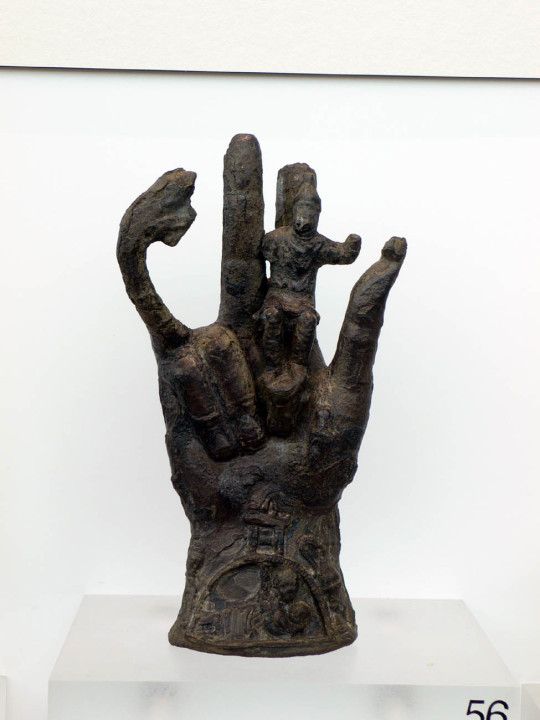
From the Roman period (1st century AD) found on the Island of Escombreras (Cartagena, Spain) and preserved in the National Museum of Underwater Archeology. By: Nano Sanchez.
According to modern scholars, not a single temple dedicated to Sabazios has been located in Roman sites, although an inscription built on the wall of the abbey church of San Venanzio in Ceparana, Italy, suggested to a Renaissance humanist, that it had been built on the foundations of a temple to Jupiter Sabacio. The symbolism of these objects is not well known.
Texts from Wikipedia - Public domain pictures
92 notes
·
View notes
Photo
Hand of Sabazios.

A hand with a lot of activity on and in it, including a mother nursing her baby and a couple of reptiles clinging. Alcuni monumenti del Museo Carrafa. 1778.
1K notes
·
View notes
Text
Dionysus Deity Guide
Content warning: Dionysus is linked heavily with sexuality and sexual themes will be prevalent throughout this post.

Who is Dionysus?
Also spelled “Dionysos”, he is the Greek god of wine, ecstasy, and theatre to name a few of his areas of expertise. He was later adopted by the Romans who referred to him as Bacchus. Dionysus was known as being “twice born” due to the story of his birth(s).
The story of Dionysus’ birth is a tragedy, beginning his life with his mother’s death. The story goes that Hera caught wind of Semele’s pregnancy with Zeus’ child and convinced her to ask Zeus to show her his true godly form in order to prove that he really was Zeus. This true form was too much for a mortal to handle and Semele was consumed by fire—or the heat Zeus’ lightning bolts. Not wanting his child to die with her, Zeus sewed Dionysus into his own thigh (thought to mean his testicles).
Parents and Siblings
Zeus (Father)
Semele (Mother)
Demeter (Mother, at times)
Persephone (Mother in Orphic mythos)
Siblings
Aeacus
Angelos
Apollo
Ares
Artemis
Athena
Eileithyia
Enyo
Eris
Ersa
Hebe
Helen of Troy
Hephaestus
Heracles
Hermes
Minos
Pandia
Persephone
Perseus
Rhadamanthus
Tantalus
the Graces
the Horae
the Litae
the Muses
the Moirai
Lovers or Partners
Ariadne (Wife/Consort)
Aphrodite
Aura
Beroe
Cronois
Nicaea
Althaea
Erigone
Pellene
Physcoa
Ampelus
Polymnus or Hyplipnus
Children
HYMENAIOS/Hymenaeus (Son)
IAKKHOS (Iacchus) (Son)
METHE (Daughter)
PASITHEA (Daughter)
PRIAPOS/Priapus (Son)
SABAZIOS/Sabazius (Son)
TELETE (Daughter)
THYSA (Daughter)
DEIANEIRA (Daughter)
EURYMEDON (Son)
KERAMOS/Ceramus (Son)
NARKAIOS/Narcaeus (Son)
OINOPION/Oenopion (Son)
PEPARETHOS/Peparethus (Son)
PHANOS (Son)
PHLIASOS or PHLIAS (Son)
STAPHYLOS/Staphylus (Son)
THOAS
Epithets
Note: Dionysus has many epithets and to create a list of all of them would make this post WAY too long so I’ve added as many as I could while retaining a good length for the post. :,>
Dionysus Eleutherios ("the liberator")
Acratophorus, Ἀκρατοφόρο�� ("giver of unmixed wine"), at Phigaleia in Arcadia
Acroreites at Sicyon
Androgynos Ἀνδρόγυνος (androgynous, specifically in intercourse) referring to the god taking both an active male and a passive female role.
Bassareus, Βασσαρεύς a Thracian name for Dionysus, which derives from bassaris or "fox-skin", which item was worn by his cultists in their mysteries.
Braetes, Βραίτης ("related to beer") at Thrace
Cistophorus Κιστοφόρος ("basket-bearer, ivy-bearer"), Alludes To baskets being sacred to the god.
Dimetor Διμήτωρ ("twice-born") Refers to Dionysus's two births.
Dendrites Δενδρίτης ("he of the trees"), as a fertility god.
Enorches ("with balls"), with reference to his fertility, or "in the testicles" in reference to Zeus' sewing the baby Dionysus "into his thigh", understood to mean his testicles). Used in Samos and Lesbos.
Iacchus, Ἴακχος a possible epithet of Dionysus, associated with the Eleusinian Mysteries. In Eleusis, he is known as a son of Zeus and Demeter. The name "Iacchus" may come from the Ιακχος (Iakchos), a hymn sung in honor of Dionysus.
Lenaius, Ληναῖος ("god of the wine-press")
Phleus ("related to the bloοm of a plant").
Pseudanor Ψευδάνωρ (literally "false man", referring to his feminine qualities), in Macedonia.
Tauros, Ταῦρος ("a bull"), occurs as a surname of Dionysus.
(Wiki)
Notes
Dionysus may have been worshipped as early as c. 1500–1100 BC by Mycenaean Greeks.
After birth Dionysus was said to have been sent to be cared for by Nymphs at Mount Nysa, the identities of these Nymphs varies by source.
His wife, Ariadne, was abandoned by Theseus on the island of Naxos. In some myths she is slain and/or ascends to immortality to live with her husband on Mt. Olympus.
Once he was an adult, Dionysus traveled to the underworld to bring his mother back with him to Olympus where it’s said that Zeus then turned her into the goddess Thyone—Goddess of the Bacchic frenzy that his female followers experience.
Dionysus is regularly found with groups of satyrs and maenads.
Another name the Greeks had for Dionysus was Bacchus, this was the name the Romans would later adopt for the god. Bacchus means “the noisy or riotous god”, fitting for this buck-wild deity! (Said with affection, of course.)
Along with wine, ecstasy, and theatre, Dionysus was known as a god of vegetation, madness, and frenzy along with quite a few other specializations.
Once a group of pirates kidnapped Dionysus who planned to sell him as a slave (or other unsavory things, depending on the myth); he overran their boat with creeping vines and beasts, and caused the men to go insane, then turned them into dolphins as they jumped overboard.
Dionysus has been depicted in many ways over time but two prevalent depictions are either him as an androgynous youth or an old, bearded man.
Apparently Dionysus hates owls; rather he hates the “sight of an owl” (Theoi)
As Bacchus he was commonly depicted as having ram or bull horns.
Dionysus had many cults throughout the ancient world including not just Greece, but in Scythia, Eastern Europe, Libya, North Africa and Gaul, Southern France as well.
Modern Deity Work
Correspondences
These are not all historically accurate. Anything that has a background in ancient tradition will be marked with a (T).
Rocks/Stone/Crystals
Grape Agate
Amethyst (it was believed that this stone could protect you from drunkenness)
Antimony
Gold
Garnet
Ruby
Herbs/Plants
Pinecone & Pine tree (due to his staff being tipped with a pinecone) (T)
Grapes/grapevines (T)
Ivy (T)
Asphodel (T)
Animals
Leopard or Panther
Tiger
Bull
Serpent
Dolphins (T)
Fawns (his followers were said to wear fawn-skins)
Important Dates
Dionysia
Haloa
Ascolia
Lenaia
Bacchanalia
Offerings
Wine (T)
Objects or imagery of the aforementioned items and animals
Fruit or fruit salad
Honey
Beer
Acts of Devotion
Go buck-wild (half joking here)
Dance
Host festivities
Sing
Attend, write, or act in a play (T)
Sign, create, or recite Hymns to Dionysus (T)
Protect or be an ally for queer, androgynous, and gender non-conforming folks
Dress up in costumes
Make a mask for him (T)
Have sex or solo sex
As the god of comedy he'd also probably enjoy stand-up comedians just sayin
Be yourself!! Dionysus is especially known to love on outcasts.
All in all, how you interact with a deity is up to you, these are simply a few suggestions for you based on my readings!
References and Further Reading
Dionysus - Britannica
Dionysus - Wikipedia
Dionysos - Theoi
The Bacchae - Ancient-Literature
The Masque of Dionysus by Helene P. Foley
The Frogs - Aristophanes (wiki summary, but there are free pdfs of the translated story!)
Misc Myths: Dionysus - Overly Sarcastic Productions
Ecstasy and Possession: The Attraction of the Women to the Cult of Dionysus
Cult of Dionysos - Theoi
411 notes
·
View notes
